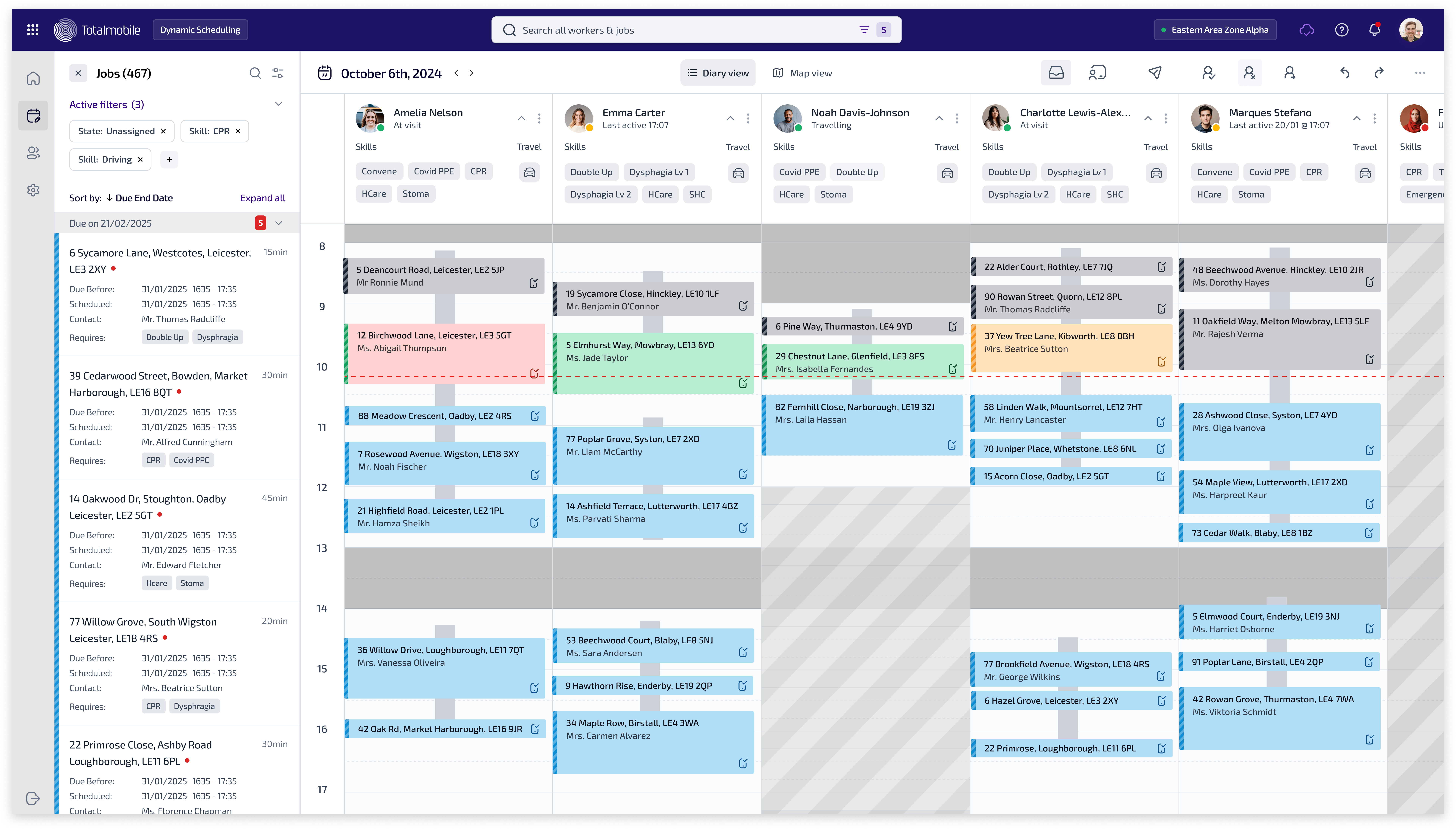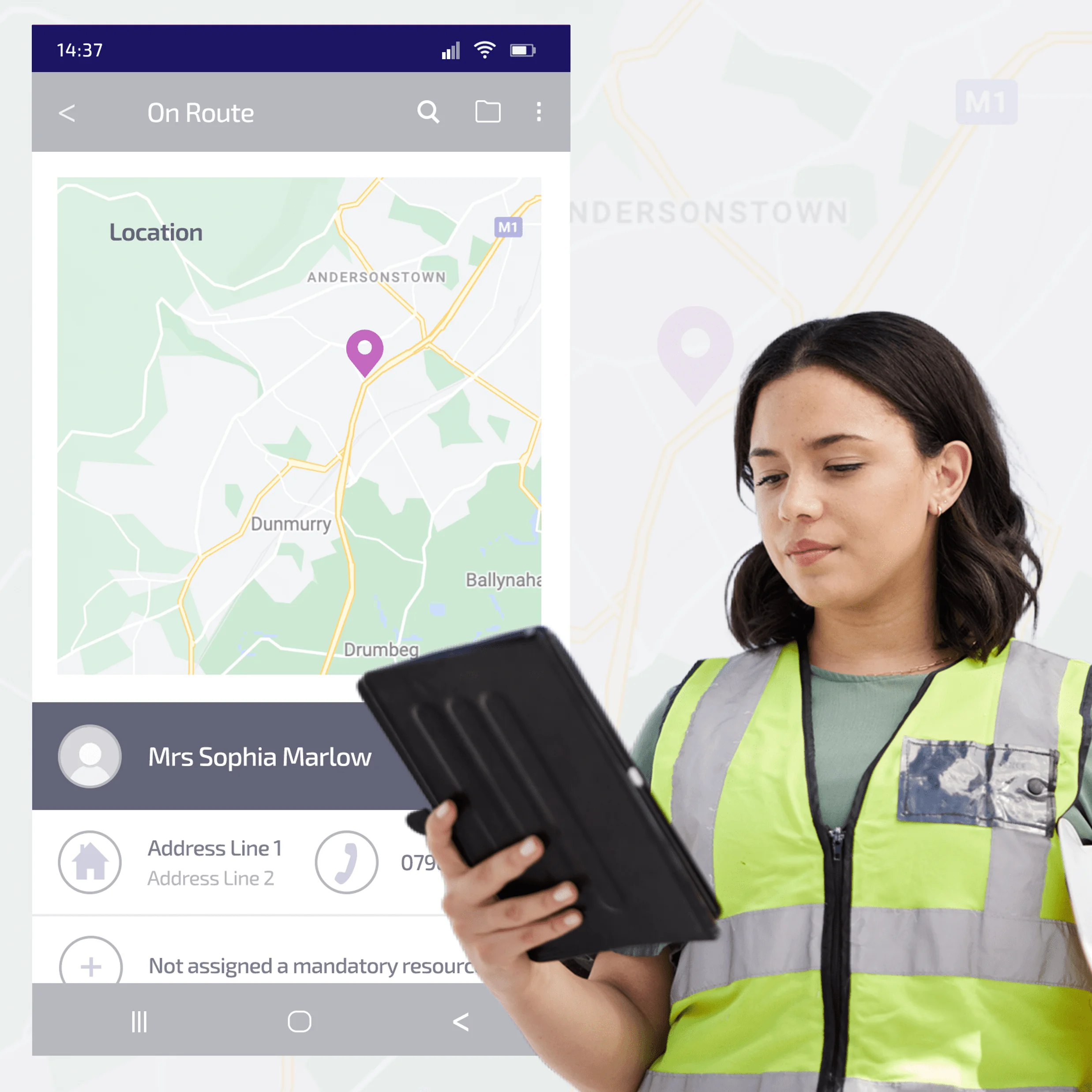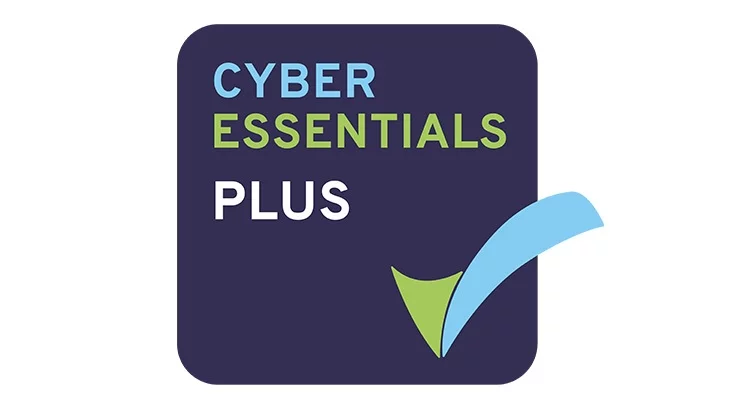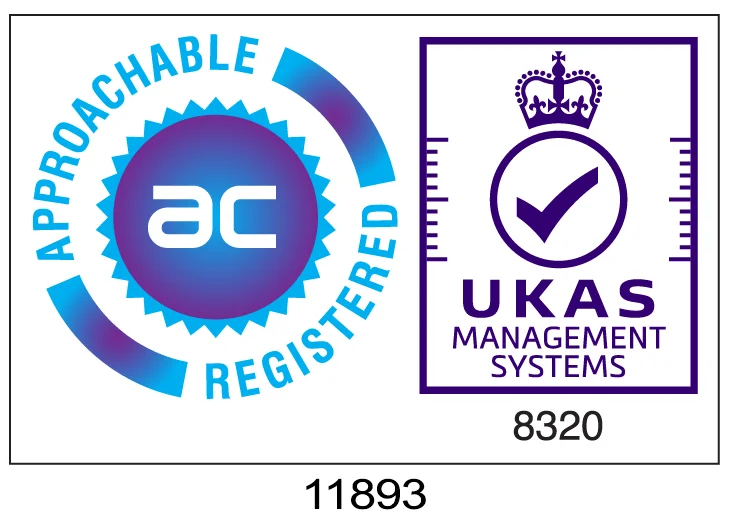Workforce Scheduling Software
Assign the best technician for every job, automatically, or with planner input.
- Build smarter schedules that balance travel time, SLAs, and first-time fix rates
- Automatically adjust to real-time delays, absences, or urgent jobs
- Reduce operational costs and cut CO₂ by streamlining job completion

Watch The Demo
Trusted By





“The best part about Totalmobile is that the schedules are calculated and ready to go in just 15 minutes. Our managers no longer need to spend their weekends preparing for the week ahead.”
– Jason Chandler, Senior Operations Director at Kelly Group
Why employee scheduling software?
BUILD THE BEST SCHEDULE
Assign every job to the right person based on real-time skills, location, and availability — all while aligning with your service priorities. Whether you need to hit SLAs, or prioritise urgent jobs, Workforce Scheduling helps planners get it right, fast.
CUT TRAVEL TIME, REPEAT VISITS & CO₂ EMISSIONS
Reduce mileage & eliminate unnecessary journeys. Workforce Scheduling helps you lower fuel costs, cut carbon emissions, & boost workforce productivity with every job completed.
REPORTING AND ANALYTICS
Unlock detailed metrics on job completion rates, travel efficiency, and workforce utilisation. Use these insights to improve future planning, optimise staff performance, and continuously improve service delivery.
Without Workforce Scheduling
- Delays, traffic, or sick days cause disruption that’s difficult to manage manually.
- Planners spend too much time reassigning tasks and adjusting schedules by hand.
- Field staff often wait between jobs or spend longer on the road, increasing costs and impacting SLAs.
- It’s hard to see who’s available, where jobs are delayed, or how to respond efficiently.
- Changes lead to bottlenecks, inconsistent service, and pressure on planners and frontline teams.
With Workforce Scheduling
- Schedules update in real-time based on job overruns, cancellations of staff absences. No manual rework required.
- Tasks are intelligently assigned based on skills, location, and availability to maximise efficiency.
- Reduced travel time and fewer delays means more jobs completed each day, while cutting fuel costs and emissions.
- Live dashboards give planners clear visibility of job progress, staff location, and potential delays.
- Operations stay on track, helping you meet SLAs, reduce repeat visits, and deliver consistent service.




Automated Advanced Scheduling
The Workforce Scheduling capability automatically builds efficient schedules based on your business goals, whether that’s reducing travel, increasing job volume, or maintaining service continuity. It continuously adapts to real-time changes like overruns or staff absences, ensuring your teams always work from the best possible schedule.
Manual Advanced Scheduling
For organisations preferring a hands-on approach, the Workforce Scheduling capability includes a manual scheduling option. Planners can easily assign jobs using a simple drag-and-drop interface, maintaining full control. It also offers an intelligent assistant feature, suggesting schedules that planners can adjust before publishing, blending automation with human expertise.








Scheduling Dashboard
Planners benefit from multiple dashboards that provide real-time visibility into schedules, job progress, and staff status—improving control over service delivery.
The scheduling dashboard uses simple colour codes to highlight job statuses, helping planners quickly identify and address potential issues.
Map views allow back-office teams to track staff locations and routes, enhancing operational oversight and responsiveness.
Detailed reporting and analytics offer insights into scheduling efficiency, staff performance, and job completion, supporting smarter decisions and ongoing improvements.
Dynamic Dispatch
In industries where full-day scheduling isn’t practical, Workforce Scheduling capability offers a reactive, short-term approach for greater flexibility.
This feature assigns new work only after an operative finishes their current job, considering location, skills, and job priority.
By dispatching one job at a time instead of a full list, organisations gain maximum agility to manage unexpected changes and shifting demands.







